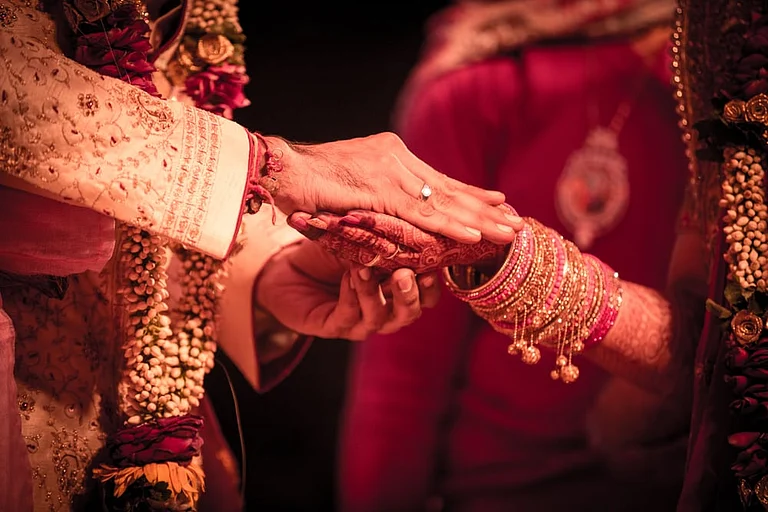Whenever a marriage comes to its legal end, an important question often comes forth - how much alimony should be granted to the other spouse and under what conditions? In India, discussions around marriage alimony rights and how much is the ideal amount have been on the rise. A recent ruling by the Madhya Pradesh High Court has shed light on these conditions, offering more clarity on what are the legal frameworks surrounding alimony under Section 25 of the Hindu Marriage Act, 1955.
What was the case?
The case in question involved a husband who had filed for divorce on grounds of cruelty under Section 13(1)(ia) of the Hindu Marriage Act. In its ruling, the court granted the divorce but also directed the husband to pay a monthly alimony of Rs 12,000 to his ex-wife.
However, the husband challenges the alimony order, arguing that his wife had not even formally applied for alimony under Section 25 of the HMA.
Alimony Can’t Be Granted Without Formal Application
A key takeaway of this case revolved around whether a court can award a ‘permanent alimony’ even when no formal application has been filed by the spouse. The court referenced multiple High Court rulings which brought forth conflicting judgments.
It cited precedents from the High Court rulings of Madras, Bombay, and Madhya Pradesh. In some cases, the Courts supported the view that an oral request or even a counterclaim in a written document can suffice.
For instance, a Bombay High Court ruling in Vijayashree D/o Ganesh Ingle Vs. Dr. Nishant Arvind Kale held that the law does not specifically demand a written application for alimony.
“With regard to question under consideration before this court, various other High Courts including this High Court have held that the word 'application' as referred to in Section 25 of the Act i.e. 'on application made to it' does not specify as to whether it is oral application or application in writing. It is also held that a broader view of Section 25 of the Act is to be taken considering the object and purpose for inclusion of this provision in the Act.”
In the case of Surajmal Ramchandra Khati Vs. Rukminibai d/o Prabhulal, the MP High Court noted that just because the wife did not give a separate application asking for a grant of permanent alimony, it doesn’t mean she is not entitled to the same.
This case also observed that the provisions of Section 25 of the Act were introduced to protect the interest of such spouse against whom the court has passed the decree.
However, the Court reviewed many other judgments as well which helped it come to a decision regarding the requirement of a written application.
Section 25(1) of the Hindu Marriage Act notes that:
“Permanent alimony and maintenance: (1) Any Court exercising jurisdiction under this Act may, at the time of passing any decree or at any time subsequent thereto, on application made to it for the purpose by either the wife or the husband, as the case may be, order that the respondent shall 55 (***) pay to the applicant for her or his maintenance…”
Post its analysis, the Court noted that it is clear that at least an application demanding permanent alimony is required, which may be either in a written statement or by a separate application.
What are the key factors Courts consider when fixing alimony?
In its ruling, the court noted that, “No fixed formula can be laid for fixing the amount of maintenance. It has to be in the nature of things which depend on various facts and circumstances of each case."
While awarding alimony, the courts take several factors into account, such as:
Financial Condition of both parties: The court, while passing any decree, assesses the income, assets, and financial obligations of both spouses. If one spouse lacks independent means of sustenance, the other can be directed to provide financial support.
Standard of living during Marriage: The legal body also tries to ensure that the spouse receives alimony that can maintain a lifestyle similar to what they had during the marriage.
Conduct of the Parties: It is important to know that the behaviour and circumstances of both parties, including any instances of cruelty or desertion may also influence the alimony amount.
Duration of the Marriage: Typically, marriages that have lasted longer often result in higher alimony amounts, as the financial dependence of one spouse on the other is the driving factor.
Custody of Children: If the spouse seeking alimony has custody of minor children, the amount may be adjusted to account for their needs and upbringing.
In total, the court has to consider:
The status of the parties (husband and wife)
Their respective needs
The capacity of the husband to pay - having regard to reasonable expenses for his own maintenance and others whom he is obliged to maintain under the law and statute.
The courts also have to take note of the fact that the amount of maintenance fixed for the wife should be such that she can live in reasonable comfort considering her status and the mode of life she was used to while living with her husband.
At the same time, the amount so fixed cannot be excessive or affect the living conditions of the other party as well (could be either the husband or wife).
In overview, these are the factors that courts must keep in mind when determining the quantum of maintenance or permanent alimony.
Why does this ruling matter?
The judgment has highlighted that the courts have the discretion to award alimony but a formal (written) application demanding permanent alimony is needed. Those who might be caught up in such legal cases should make sure to refer to such court rulings and orders that might either help the case or provide more clarity on the matter.
Buy Outlook Money March 2025 Magazine Issue on Amazon Here.














